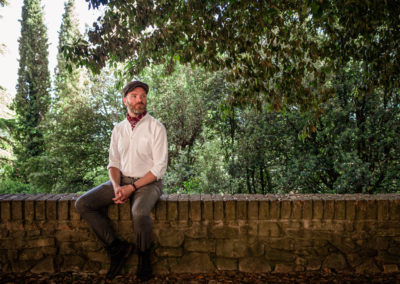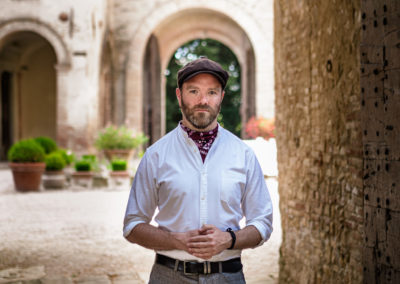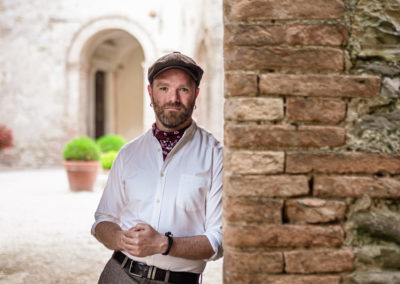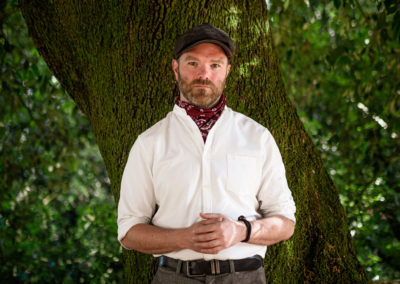When we refer to culture, we usually speak of it in large terms. A national culture. A traditional culture. A religious culture. A set of practices or forms that have been passed down through generations. Here, I’ve been reminded that culture is a simple, humble element. It emerges from a group of people spending time with each other, sharing their beliefs, influences, thoughts, images, song. Civitella has reminded me that culture grows from community, it is as fluid as those who participate in it.
I’ve been spending a lot of my time in the Civitella Ranieri thinking about resistance.
I find that I work best when I have something to push against. That might be a slight or a personal grudge, or a need to prove myself, or difficult living/working conditions. I have fuelled myself – usually internally, and usually quietly – on a large stack of ‘Fuck Yous’ that I’ve privately stored away somewhere.
And this place has denied me access to them. I have more time than I know what to do with. I sleep in a castle. I have a team of chefs cooking for me. I shower in a turret. And I can’t seem to find anyone who even mildly irritates me – and believe me, I’ve looked. I have to admit that here, for probably the first time in my life I’ve experienced that vile state that I’ve done so much to avoid – the state of contentment.
And it’s re-stirring larger questions for me, ones that I keep returning to. How to write from a state of priviledge? Can a white, hetrosexual, middle-class man, add a voice to all that’s happening at the moment. Maybe this is a time for people like me to be quiet. To give space to all of those with less autonomy, less choice, less opportunity, less material advantage.
So, this weeks, I’ve compensated for this – and offset my Catholic guilt – by reading poets of resistance. I’ve been turning the pages of Anna Akhmatova, Yosip Mandelshtam, Zigniew Herbert. People who used sentences to navigate themselves and others through the darkest of times.
And what’s striking in reading their work – is that the dominant tone isn’t anger, in fact there’s surprisingly little of it spread out over the pages. They’re not optimistic. But nor are they defeatist. Nor despairing.
Pain is present. But mostly what is present is dignity. And as we know, dignity and pain are often intimately linked.
Brecht asks himself the question – ‘Can we sing in the darkness?’
And he answers it by saying – ‘Yes. We will sing of the darkness.’
Reading these beautiful poems has made me think again about the word resistance. About resistance as a form. It’s a word we associate with protest, with friction, with violence and counter-violence. But instead of thinking of it in political terms, I’ve begun to think of it in scientific terms. I’ve been thinking about electrical resistance.
The electrical resistance of an object is a measure of its opposition to the flow of an electrical current. The greater the resistance, the greater the dissipation of the current.
And this resistance is not primarily based on density, it’s based on shape. A thin strand of wire offers greater electrical resistance than a block of iron. By the laws of physics, the pen really is mightier than the sword.
And if rage and entitlement are the dominant emotional forces of our time, then perhaps they are resisted best by their opposites. Perhaps our resistance needs to be reshaped into something that doesn’t resemble that which we oppose.
Dignity is a shape that opposes the prevailing currents. Humility opposes the prevailing currents, as does selflessness, service, an embrace of beauty, stillness.
I wanted to say all of this as a way of thanking you – everyone here – but most especially Dana and the staff – for displaying these characteristics and for allowing me to amble along through my days, unhindered by nothing other than my own mind. This is what freedom tastes like. I hope I can share it around.
‘What would the world be,’ writes Zbigniew Herbert, ‘were it not filled with the incessant bustling of the poet amongst the birds and stones.’



